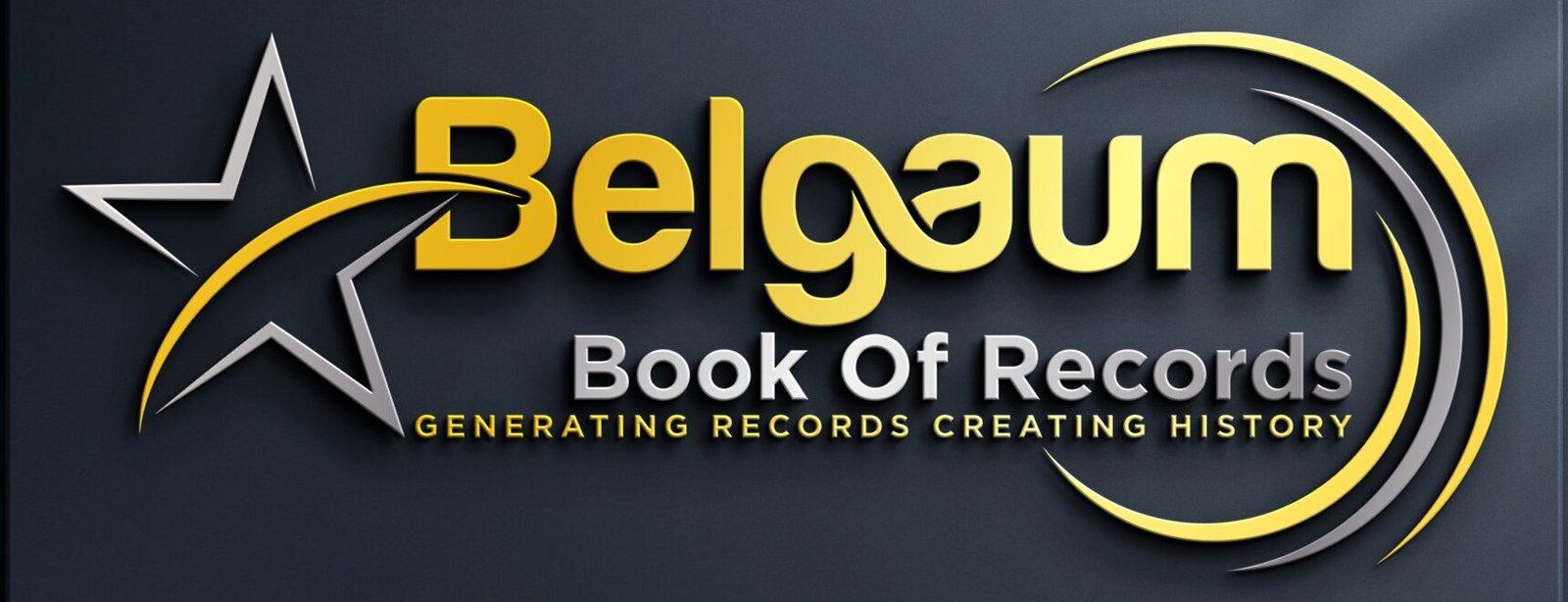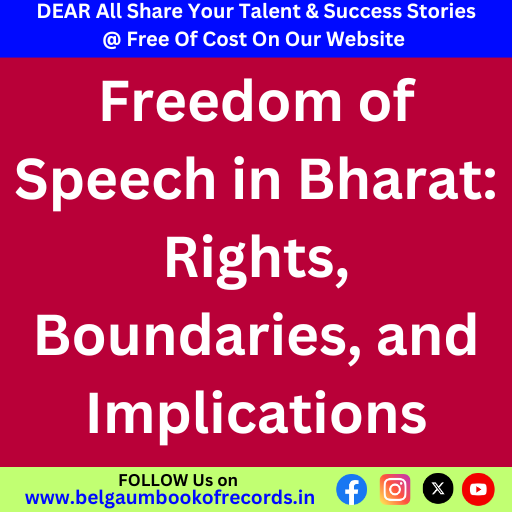Freedom of speech is a cornerstone of democratic societies, enabling citizens to freely express their ideas and opinions, contribute to public discourse, and participate in governance. In India, the Right to Freedom of Speech and Expression is safeguarded by Article 19(1)(a) of the Constitution, a provision that underscores the country’s commitment to civil liberties and democratic values. However, this right is not absolute; it is accompanied by legally defined boundaries designed to protect public order, morality, and national integrity. In this article, we will examine the nuances of free speech in India, the nature of permissible restrictions, and its role in fostering a resilient society.

- The Right to Freedom of Speech in India
The Right to Freedom of Speech and Expression under Article 19(1)(a) of the Indian Constitution empowers citizens to communicate their thoughts, beliefs, and ideas through any medium. This right is fundamental to enabling public dialogue, protecting dissent, and facilitating an informed electorate—all essential components of a robust democracy.
Freedom of speech serves as the foundation for other democratic rights by ensuring open exchange and transparency in public matters. Nonetheless, the right is not unrestricted and is subject to specific constitutional limitations to safeguard the broader public interest.
- Constitutional Restrictions on Freedom of Speech
Article 19(2) of the Indian Constitution outlines several “reasonable restrictions” on free speech. These limitations ensure that individual expression does not infringe upon the rights and safety of others or disrupt societal harmony. Key restrictions include:
Security of the State: Expressions that could endanger the state’s stability, by inciting rebellion or violence, are restricted to protect national security.
Sovereignty and Integrity of India: Speech undermining the unity of India can be curtailed to maintain national integrity.
Public Order: Speech that could lead to unrest or disturb societal peace is subject to regulation.
Decency and Morality: Content considered obscene or offensive to public decency and morals may be limited.
Contempt of Court: To uphold the dignity of the judiciary, speech should not impair judicial proceedings or undermine public confidence in the justice system.
Defamation: Individuals are protected from speech that harms their reputation or character through libel or slander.
Incitement to an Offense: Speech inciting criminal acts or illegal conduct is not protected under Article 19.
The judiciary plays a pivotal role in interpreting these restrictions, striking a balance between individual rights and collective security.

- Defining Freedom of Speech Through Landmark Cases
Indian courts have historically defined the limits of free speech through landmark judgments that have shaped contemporary legal interpretations. Some notable cases include:
Kedar Nath Singh v. State of Bihar (1962): The Supreme Court upheld Section 124A of the Indian Penal Code, addressing sedition. The ruling emphasized that criticism of government policies does not amount to sedition unless it incites violence or disrupts public order.
Shreya Singhal v. Union of India (2015): This pivotal judgment struck down Section 66A of the Information Technology Act, which criminalized “offensive” online content. The Supreme Court found the provision overly vague and held that it violated the right to free speech.
Indibily Creative Pvt Ltd. v. State of West Bengal (2020): In this case, the Supreme Court held that the state’s suppression of a controversial film was unconstitutional, reinforcing that creative expression must be protected unless it threatens public order.
These cases underscore the judiciary’s role in upholding free speech while refining the scope of permissible restrictions to adapt to evolving social contexts.

- Challenges in Upholding Freedom of Speech in the Digital Age
With the rise of digital media, social networks, and the internet, the landscape of free speech in India faces new complexities:
Misinformation and Fake News: The proliferation of unverified information has amplified the need for legal checks to prevent public harm.
Hate Speech and Online Harassment: Hate speech, cyberbullying, and harassment have become prevalent on digital platforms, challenging legal systems to manage these issues effectively.
Self-Censorship and Social Censorship: Social pressures, particularly on online platforms, can compel individuals to self-censor, limiting the free exchange of ideas. This trend has raised concerns about whether public discourse is being subtly curtailed.
- Balancing Free Speech and Social Responsibility
While the right to free speech is an essential democratic tenet, it comes with the responsibility to use this right judiciously. A balanced approach to free speech is necessary to uphold both individual liberties and public interests. The judiciary’s interpretive role is crucial in determining this balance, ensuring that restrictions are applied only where they are essential to preserving social order and justice.
Promoting responsible speech and fostering an environment for constructive discourse are vital for a thriving democracy. This balance allows citizens to exercise their rights fully while respecting societal values and maintaining the integrity of public institutions.

Conclusion
Freedom of speech is an empowering right that enriches democratic discourse, fuels innovation, and promotes transparency. While legal boundaries exist to prevent harm and preserve public order, these restrictions are carefully circumscribed to prevent the overreach of state power.
As India continues to evolve in the digital era, policymakers, the judiciary, and citizens must collaborate to uphold the spirit of free speech. By fostering respectful discourse and practicing responsible expression, society can ensure that freedom of speech remains a force for progress, inclusivity, and resilience.










